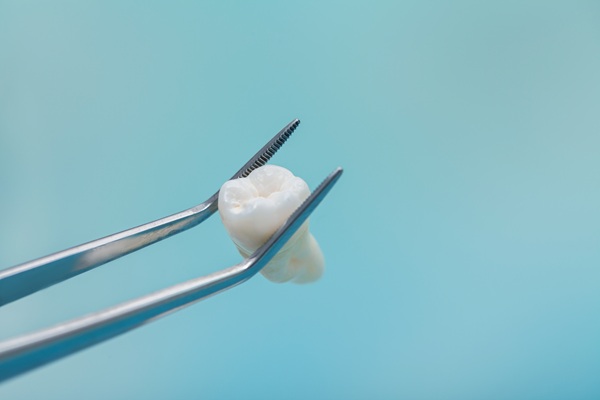The Dos and Don’ts After Tooth Extraction
is a common dental procedure that may be necessary for various reasons, including decay, infection, or overcrowding. After undergoing a tooth extraction, it is crucial to follow proper care instructions to ensure a smooth and successful healing process. Understanding the dos and don'ts after a tooth extraction can help prevent complications, reduce pain, and promote faster healing.
Dos after tooth extraction
According to the Cleveland Clinic, healing times can vary for each patient after tooth extractions, but most patients return to normal activity within 72 hours. Their bone and socket may take several weeks to heal. In this time, patients will want to follow a few yet crucial steps to ensure a smooth recovery and to minimize the risk of infection or other complications. They are as follows:
- Rest and elevate the head. The dentist will provide patients with a doctor's note to help excuse them from work or school, as resting for the first 48 to 72 hours is crucial for recovery. Avoiding strenuous physical activities and keeping the head elevated can help the body focus on healing, reduce swelling, and promote blood circulation.
- Apply cold compresses. Swelling is common after tooth extraction; therefore, patients should apply cold compresses in 15- to 20-minute increments within the first 24 hours post-surgery to reduce discomfort.
- Maintain oral hygiene. To avoid infections, patients should gently rinse their mouths with lukewarm saltwater multiple times a day to reduce bacteria and promote healing. Be sure to avoid brushing directly on or near the extraction site for a few days to avoid irritation.
- Adopt a soft diet. After tooth extraction, patients should follow a soft-food diet for the first few days to prevent irritating the extraction site. Foods such as yogurt, mashed potatoes, protein shakes, smoothies, and scrambled eggs are good options.
Note that this list is not exhaustive. Certain patients with underlying health conditions, such as diabetes, may require additional instructions. However, the dentist will provide these at the time of the appointment.
Don'ts after tooth extraction
While following proper aftercare instructions is essential, it is also important to be aware of certain actions to avoid after a tooth extraction. The following don'ts will help prevent complications:
- Do not smoke. Smoking after a tooth extraction can inhibit healing, and the suction created by healing can dislodge the blood clot that forms in the extraction site, leading to a painful condition called dry socket.
- Do not drink through a straw. Using a straw can create suction in the mouth, which can dislodge the blood clot at the extraction site. Again, this can cause dry socket and significantly delay the healing process.
- Do not touch the extraction site. Patients must avoid touching the extraction site with objects, their fingers, or tongue, as this can introduce bacteria and cause infection.
- Do not eat spicy foods. Hot foods and drinks can increase swelling and discomfort, especially during the initial healing period. Spicy or heavily-seasoned foods may irritate the extraction site and cause discomfort.
Again, if patients have an underlying medical condition, the dentist may recommend further instructions, such as which medications are appropriate and which are not during recovery.
Call us for more information
Tooth extraction can be an essential procedure for maintaining overall oral health. However, it is crucial to follow proper guidelines. For more information about the tooth extraction procedure or to learn about the necessary steps for recovery, do not hesitate to contact our office.
Request an appointment here: https://www.thescarsdaledentist.com or call The Scarsdale Dentist at (914) 491-5802 for an appointment in our Scarsdale office.
Check out what others are saying about our dental services on Yelp: .
Related Posts
Replacing your missing tooth protects your dental health while restoring the appearance of your smile. Replacing a lost tooth with an oral prosthetic often starts with a consultation with a dentist. The dentist evaluates the patient’s teeth and gums before recommending missing teeth replacement options that are best suited for them.Consulting with a dentist about…
An immediate visit to an emergency dentist becomes necessary when severe tooth pain or infection disrupts your comfort and overall quality of life. This dental professional provides immediate evaluation and relief, particularly when a root canal is required to preserve a damaged or infected tooth. Root canal treatment from an emergency dentist can help alleviate…
Dental implants have become widely popular as a natural-looking tooth replacement solution. Not only do implants restore a patient’s full smile, but they also keep the jawbone engaged to prevent it from shrinking. However, they must be surgically implanted, which can bring some risks. Dive deeper into the pros and cons of dental implants to…
Dental implants are available to provide permanent restoration to missing teeth. Though a favorite among dental professionals and patients, there are a few things to consider before choosing these smile restoratives.Patients will need an adequate amount of underlying jaw for the dental implant process. Patients with insufficient jawbone density may be eligible for bone grafts,…
